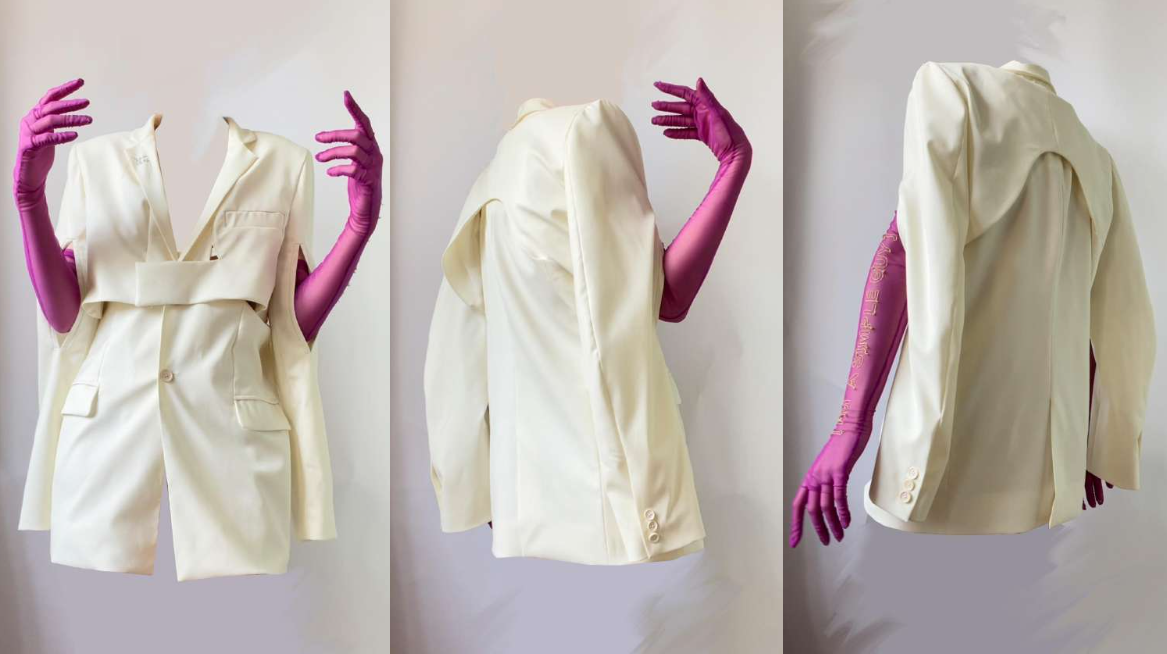
Parsons Students Earn Scholarships in Multiple Categories from the Council of Fashion Designers of America
For the 25th anniversary of the Council of Fashion Designers of America (CFDA) Scholarship Program, the selection process was more competitive than ever, as only 19 students out of more than 320 applicants received recognition.
As the number one ranked design school in the country, Parsons was well represented in the list of winners, with students from throughout the School of Fashion at Parsons earning scholarships from a variety of categories.
Firas Zedan, BFA Fashion Design ‘22, was one of the “Coach Dream It Real X CFDA Design Scholarship Award” recipients, while Nayon Kim, BFA Fashion Design ‘22, was one of two winners of the “CFDA Design Scholar” awards. Alexandra Petina, Eva Heugenhauser, and Tao Li, all MFA Fashion Design and Society ‘22, won the “CFDA Design for Social Justice Scholar Award,” while Rebecca Flood, BFA Fashion Design ‘22, won the “CFDA Suntchi Image-Maker Award.” Lastly, Padina Bondar-Gibbs, MFA Textiles ‘22, won the “Geoffrey Beene Design Masters Scholar Award.”
“With our innovative and important visions in mind, we highly appreciate having received this scholarship award in order to further strengthen our voices and inputs as fashion designers,” shared Petina, Heugenhauser, and Li, who won the “CFDA Design for Social Justice Scholar” award. “With this support, we can accommodate our monetary challenges which resultantly helps us grow personally, by gaining more financial security as well as self-confidence and reliability. Especially as COVID-19 has impacted our education heavily, since we were not able to access our work spaces properly and had to face many restrictions and limitations, we considerably benefit from this great scholarship opportunity.”
Petina, Heugenhauser, and Li developed their project as part of a course taught by Joff Moolhuizen and Lucy Jones, Fashion Design ‘15, where groups of students each worked with a different person in the disabled community to create a custom design of their choice. Their group worked specifically with Aaron Pagan, who is Deaf, and wanted a custom suit that would give him better mobility as he uses American Sign Language to communicate.
“As fashion designers, we feel the strong need to take responsibility in not only serving but also advocating for those populations within society that are often ignored or alienated,” shared the designers. “We would like to appreciate this chance as a key to provide an open platform for different communities.”
The designers who created Aaron’s suit were also inspired by his readiness and willingness to share his experiences as a Deaf person, which allowed them to establish unique design principles that guided their creation process.
“During the design development of our applications, our intention was to provide Deaf people with a visual form of representation – tools of acknowledgement – which will highlight their distinctive identity and spatial way of communication,” explained the designers. “Simultaneously, our designs are aimed to urge more people to learn Sign Language and to become more interested in cognitive linguistic models.”

Each of the designers emphasized that their Parsons education has been instrumental in expanding their horizons when it comes to the power of design and what role fashion plays in helping underserved communities, while also giving them the opportunity to learn from experienced teachers in and out of the classroom.
Furthermore, they are grateful for the CFDA scholarship, which gives them critical monetary support, and has been a confidence boost for their work.
“With our innovative and important visions in mind, we highly appreciate having received this scholarship award in order to further strengthen our voices and inputs as fashion designers,” the designers said.
Looking ahead, the three designers are hopeful that the fashion industry can create a dialogue between different groups of underrepresented people, and that the industry will shift its attention from focusing on luxury to helping humanity.
“We are convinced that diversity among our society can help each individual grow and develop,” said the designers. “Thus, it is essential that we not only respect cultural differences, but also advocate for their rights and embrace their cultural and social values.”